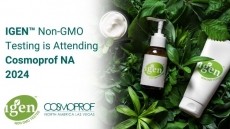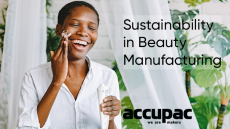Will the UN instate a global ban on animal testing for cosmetics?

Today, the L’Oréal brand and Cruelty Free International announced plans to petition the UN to ban animal testing on both finished cosmetics and on cosmetic ingredients. The Body Shop and Cruelty Free International are hoping at least 8m people around the world will sign on in support of the proposed ban.
“The Body Shop passionately believes that no animal should be harmed in the name of cosmetics and that animal testing on products and ingredients is outdated, cruel and unnecessary,” explains Jessie Macneil-Brown, senior manager of international campaigns and corporate responsibility at The Body Shop, in a media release about the initiative.
“This is why The Body Shop and Cruelty Free International have partnered to deliver the largest and most ambitious campaign ever to seek a global ban on the use of animals to test cosmetic products and ingredients,” she adds.
Stats and facts
An estimated 500,000 animals are used in cosmetics product and ingredient testing annually, according to Cruelty Free International. And if the UN issues an international convention, that number would have to drop to zero by the year 2020.
Many countries have no requirements for animal testing; yet, as noted in the press release from The Body Shop and Cruelty Free International, some 80% of countries around the world allow it.
The campaign hopes that if (or when) a ban is issued, safety testing will continue with more modern and tech-based alternative methods. Artificially grown human skin is one testing tool mentioned specifically in the release.
#ForeverAgainstAnimalTesting
The Body Shop and Cruelty Free International are looking for clarification and a lasting rule of law on animal testing. “People are confused about animal testing,” believes Michelle Thew, CEO of Cruelty Free International.
“The world over, people want this cruel practice to end, yet existing laws are a patchwork of different rules with some very big gaps,” she tells the press. “While more and more countries require non-animal safety tests and many have taken steps to prohibit cosmetics testing on animals, there is more work to be done.”
“Where animal testing is allowed – on both products and ingredients – most countries do not require testing data to be made available to the public or even to regulators. This makes it extremely difficult to know how widespread animal testing is.”
Besides global clarity and consistency on the issue, the initiative is aiming to be a once-and-for-all resolution. “This campaign will finish what we both started back in the 1980s,” explains Macneil-Brown. “With an international convention enforced, consumers would finally be confident that any cosmetics they buy are cruelty free. It's time to end animal testing for cosmetics purposes once and for all.”
















